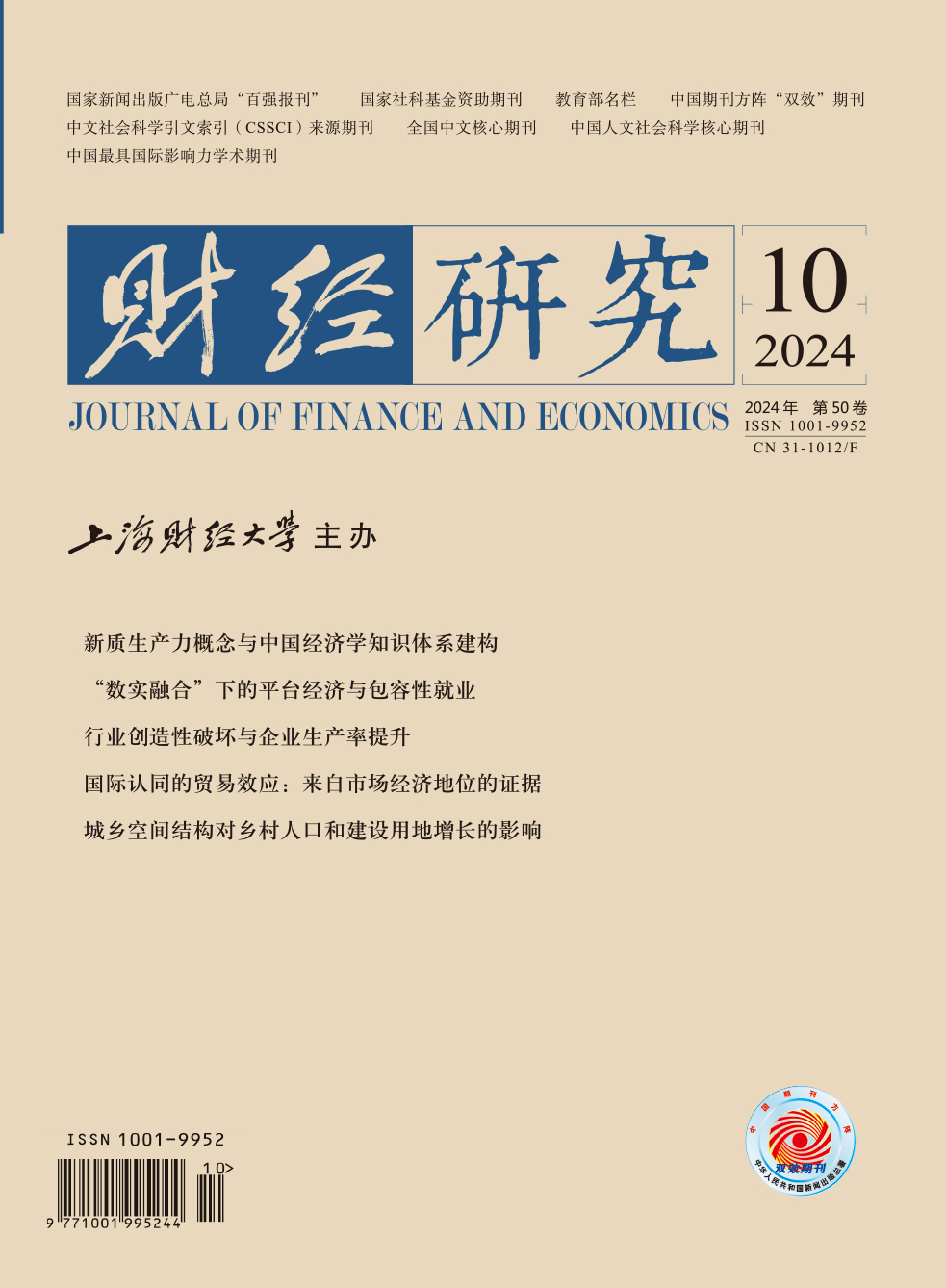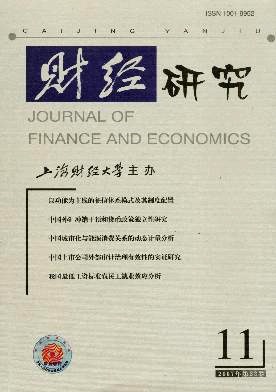中国上市公司外部审计治理有效性的实证研究——基于CEO变更视角
财经研究 2007 年 第 33 卷第 11 期, 页码:93 - 104
摘要
参考文献
摘要
外部审计作为公司治理机制不可或缺的有机组成部分,其治理效应一直备受各界关注。文章运用Logist回归方法,以1999~2004年中国上市公司的CEO变更为视角,通过研究CEO变更与"非标"意见的相关性,探讨外部审计的治理效应。研究发现:CEO变更与"非标"意见显著正相关;"非标"意见下,CEO变更对公司业绩的敏感性强于标准审计意见公司;不过,"非标"意见并没有增强CEO变更对两职分离与股权制衡的敏感性。上述结论在一定程度上验证了外部审计治理机制的有效性,同时表明外部审计的治理效应有赖于公司内部治理机制的完善。
[1]陈关亭.独立审计关系异化的分析[J].审计研究,2004,(5):78~84.
[2]陈信元,汪辉.股权制衡与公司价值:模型及经验证据[J].数量经济技术经济研究,2004,(11):102~110.
[3]何红渠,张志红.有关审计意见识别盈余管理能力的研究———来自沪市制造业的经验证据[J].财经理论与实践,2003,(11):70~74.
[4]黄渝祥,孙艳,邵颖红,等.股权制衡与公司治理研究[J].同济大学学报,2003,(9):1102~1105.
[5]李东平,黄德华,王振林.“不洁”审计意见,盈余管理与会计师事务所变更[J].会计研究,2001,(6):51~57.
[6]刘峰,郭永祥,任永彝.会计师事务所与上市公司审计合谋的经济分析[J].经济体制改革,2002,(3):138~142.
[7]刘晶.ST公司高级管理人员更换与公司业绩的关系[J].山东省农业管理干部学院学报.2003,(16):119~121.
[8]宋建波,陈华昀.我国注册会计师审计与上市公司盈余管理研究[J].财经问题研究,2005,(3):87~90.
[9]王霞,张为国.财务重述与独立审计质量[J].审计研究,2005,(3):56~61.
[10]王鹏,周黎安.中国上市公司外部审计的选择及其治理效应[J].中国会计评论,2006,(2):321~344.
[11]魏明海,黎文靖,路晓燕.私人信息与CEO会计责任的认定———以前世通公司CEO埃贝斯法庭审理为例[J].审计研究,2006,(3):47~51.
[12]徐浩萍.会计盈余管理与独立审计质量[J].会计研究,2004,(1):44~49.
[13]张涛.ST公司高管人员更换之相关因素实证研究[J].会计之友,2005,(4):60~61.
[14]周兵,王德义.盈余管理与审计意见关系的实证研究[J].财会月刊(理论),2005,(12):48~49.
[15]朱红军.大股东更换与高级管理人员更换:经营业绩的作用[J].会计研究,2002,(9):31~40.
[16]Becker C M Defond,J Jiambalvo,K R Subramanyam.The effect of audit quality onearnings management[J].Contemporary Accounting Research,1998,15:1~24.
[17]Denis D J,Kruse T A.Managerial discipline and corporate restructuring followingperformance declines[J].Journal of Financial and Economics,2000,55:301~325.
[18]Engel E,Hayes R M,Wang Xue.CEOturnover and properties of accounting infor-mation[J].Journal of Accounting and Economics,2003,36:197~226.
[19]Fama E F.Agency problems and the theory of the firm[J].Journal of Political Econo-my,1980,88:288~307.
[20]Fama E F,Jensen MC.Agency problems and residual clai ms[J].Journal of LawandEconomics,1983,26(7):327~49.
[21]Farrell K A,Whidbee D A.Impact of firmperformance expectations on CEOturnover andreplacement decision[J].Journal of Accounting and Economics,2003,36:165~196.
[22]Hermalin B,Weisbach M.Endogenously chosen boards of directors and their monito-ring of the CEO[J].American Economics Review,1998,88:96~118.
[23]Jensen M,W Meckling.Theory of the firm:Managerial behavior,agency costs andownership structure[J].Journal of Financial Economics,1976,(3):305~360.
[24]Kato Takao,Long Chery1.CEOturnover,firmperformance,and enterprise reformin Chi-na:Evidence from micro data[J].Journal of Comparative Economics,2006,(8):1~22.
[25]Lausten M.CEOturnover,firmperformance and corporate governance:Empirical ev-idence on danish firm[J].International Journal of Industrial Organization,2002,20:391~414.
[26]Morck R,Shleifer A,Vishny R W.Alternative mechanisms for corporate control[J].American Economic Review,1989,79:842~852.
[27]Renneboog,L.Ownership,managerial control and the governance of companies listed onthe Brussels Stock Exchange[J].Journal of Banking&Finance,2000,24:1959~1995.
[28]Yukiko.Chief executive turnover and firm performance in Japan[J].Journal of theJapanese and International Economies,1997,11:2~26.
[2]陈信元,汪辉.股权制衡与公司价值:模型及经验证据[J].数量经济技术经济研究,2004,(11):102~110.
[3]何红渠,张志红.有关审计意见识别盈余管理能力的研究———来自沪市制造业的经验证据[J].财经理论与实践,2003,(11):70~74.
[4]黄渝祥,孙艳,邵颖红,等.股权制衡与公司治理研究[J].同济大学学报,2003,(9):1102~1105.
[5]李东平,黄德华,王振林.“不洁”审计意见,盈余管理与会计师事务所变更[J].会计研究,2001,(6):51~57.
[6]刘峰,郭永祥,任永彝.会计师事务所与上市公司审计合谋的经济分析[J].经济体制改革,2002,(3):138~142.
[7]刘晶.ST公司高级管理人员更换与公司业绩的关系[J].山东省农业管理干部学院学报.2003,(16):119~121.
[8]宋建波,陈华昀.我国注册会计师审计与上市公司盈余管理研究[J].财经问题研究,2005,(3):87~90.
[9]王霞,张为国.财务重述与独立审计质量[J].审计研究,2005,(3):56~61.
[10]王鹏,周黎安.中国上市公司外部审计的选择及其治理效应[J].中国会计评论,2006,(2):321~344.
[11]魏明海,黎文靖,路晓燕.私人信息与CEO会计责任的认定———以前世通公司CEO埃贝斯法庭审理为例[J].审计研究,2006,(3):47~51.
[12]徐浩萍.会计盈余管理与独立审计质量[J].会计研究,2004,(1):44~49.
[13]张涛.ST公司高管人员更换之相关因素实证研究[J].会计之友,2005,(4):60~61.
[14]周兵,王德义.盈余管理与审计意见关系的实证研究[J].财会月刊(理论),2005,(12):48~49.
[15]朱红军.大股东更换与高级管理人员更换:经营业绩的作用[J].会计研究,2002,(9):31~40.
[16]Becker C M Defond,J Jiambalvo,K R Subramanyam.The effect of audit quality onearnings management[J].Contemporary Accounting Research,1998,15:1~24.
[17]Denis D J,Kruse T A.Managerial discipline and corporate restructuring followingperformance declines[J].Journal of Financial and Economics,2000,55:301~325.
[18]Engel E,Hayes R M,Wang Xue.CEOturnover and properties of accounting infor-mation[J].Journal of Accounting and Economics,2003,36:197~226.
[19]Fama E F.Agency problems and the theory of the firm[J].Journal of Political Econo-my,1980,88:288~307.
[20]Fama E F,Jensen MC.Agency problems and residual clai ms[J].Journal of LawandEconomics,1983,26(7):327~49.
[21]Farrell K A,Whidbee D A.Impact of firmperformance expectations on CEOturnover andreplacement decision[J].Journal of Accounting and Economics,2003,36:165~196.
[22]Hermalin B,Weisbach M.Endogenously chosen boards of directors and their monito-ring of the CEO[J].American Economics Review,1998,88:96~118.
[23]Jensen M,W Meckling.Theory of the firm:Managerial behavior,agency costs andownership structure[J].Journal of Financial Economics,1976,(3):305~360.
[24]Kato Takao,Long Chery1.CEOturnover,firmperformance,and enterprise reformin Chi-na:Evidence from micro data[J].Journal of Comparative Economics,2006,(8):1~22.
[25]Lausten M.CEOturnover,firmperformance and corporate governance:Empirical ev-idence on danish firm[J].International Journal of Industrial Organization,2002,20:391~414.
[26]Morck R,Shleifer A,Vishny R W.Alternative mechanisms for corporate control[J].American Economic Review,1989,79:842~852.
[27]Renneboog,L.Ownership,managerial control and the governance of companies listed onthe Brussels Stock Exchange[J].Journal of Banking&Finance,2000,24:1959~1995.
[28]Yukiko.Chief executive turnover and firm performance in Japan[J].Journal of theJapanese and International Economies,1997,11:2~26.
引用本文
蒋荣, 刘星, 刘斌. 中国上市公司外部审计治理有效性的实证研究——基于CEO变更视角[J]. 财经研究, 2007, 33(11): 93–104.
导出参考文献,格式为:





 5174
5174  251
251

